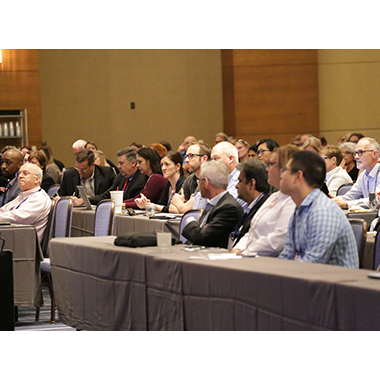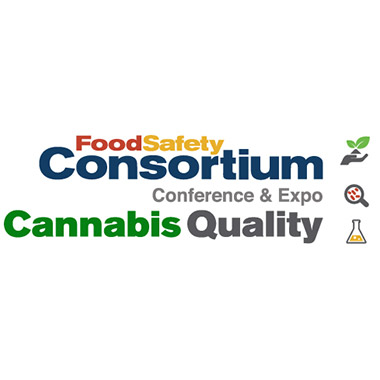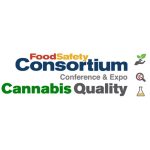Food safety audits are critical in building a strong food safety culture. Whether preparing for a retail food safety audit or striving to meet scheme or standard audit requirements, auditor calibration can provide value to ensure auditors fully understand and abide by program rules.
Understanding Auditor Calibration
Auditor calibration ensures that auditor knowledge and capabilities stay consistent and current with the latest certification requirements. This process involves developing a thorough uniform checklist, proper site preparation, comprehensive auditor training and internal onboarding. This sets all parties up for success, creating a universal food safety culture with all stakeholders understanding their role in the audit process.
Many food safety standards, such as those that fall under the Global Food Safety Initiative (GFSI), require consistent, ongoing interpretation and understanding of standard requirements. Both GFSI and unaccredited programs list auditor expectations step by step. An effective auditor calibration program can ensure that auditors speak the business’ language, understand its market and follow its program rules to meet food safety standards such as GFSI.
Steps to Using Auditor Calibration
The first step to implementing auditor calibration is developing onboarding training for all parties involved. Onboarding can include basic information with customized training for each program type based on the auditors’ existing skills and experience.
Additional training should include specifics regarding the audit program’s requirements, report-writing guidance and other foundational information. An induction form can be used as a checklist and be updated over time, providing the auditor with a template document that outlines what is expected and what they have already completed.=
Once onboarding is complete, auditors should maintain regular training and professional development. For example, GFSI program leaders often hold calls on specific topics of interest, including new requirements, pain points in the audit process, the process flow and the meaning of different triggers.
Adult Learning Principles
Effective training isn’t just about information transfer; it’s about engaging adults as active participants in their learning journey. Leveraging key adult learning principles ensures that training resonates and transforms behavior. When training programs align with adult learning principles, auditors are more likely to understand, retain and apply the knowledge. This leads to better performance and a more skilled team.
Proper training grounded in adult learning principles is an investment in knowledge and the sustained growth and success of both individuals. Here are a few ways to ensure training is effective:
- Use of Relevant, Practical Examples: Adults are more motivated to learn when the content is relevant to their work or personal lives. Training can be made practical, immediately applicable and connected to real-world scenarios to enhance motivation and retention.
- Experience as a Learning Resource: Adults bring a wealth of life and work experience to the learning process. Leverage case studies, breakout sessions and interactive activities, allowing learners to relate new information to what they already know, and share their insights and perspectives.
- Problem-Centered Approach: Adults tend to be problem solvers. They prefer learning that focuses on practical problem-solving rather than theoretical concepts.
Training Resources
In addition to working with an auditor training service provider, several resources can help organizations implement auditor calibration.
- Online Training: More online trainings are available now than ever before, with topics offered including HACCP plans, lead auditing and more. Organizations can also develop or contract a third-party provider to gain access to a learning management system (LMS) that will assign and track required training as warranted. Such systems can also incorporate videos and quizzes to gauge understanding and provide certificates to track results. Some online training sessions can also be presented in group settings to promote discussion, team bonding and better understanding.
- Shadowing: Some food safety programs require shadow audits or supervised audits prior to a witness audit. Supervised audits can serve as a great tool to promote an auditor from a shadow auditor to a lead auditor. These field events further expose auditors to the audit process and provide learning opportunities within the audit program.
- Witness Audits: Once an auditor has taken all the training required for their program and completed all the required shadow or supervised audits, a witness audit may be set up. A witness audit is essentially an audit of the auditor, during which the auditor is observed against a standardized set of requirements for that specific program. Comments are included where improvements need to be made.
Witness audits are conducted for new and experienced auditors. Before the audit is conducted, the basic expectations of the process, timing and expected audit document completion, and other details about the process are covered with the auditor to ensure a successful outcome. In this manner, the auditor is periodically refreshed on the expectations of their role. Witness audits are required regularly for GFSI-qualified auditors on a frequency specific to each program.
Improving Audits with Auditor Calibration
Auditor calibration can play an important role in ensuring consistent outcomes. At NSF, we have seen firsthand that by setting expectations for the audit team in a clear, concise manner, together you can meet a commitment to excellence. With a solid training program, you can develop a strong team of calibrated auditors who are consistently onboarded and trained. This consistency ensures clarity, support and access to information and smart questions, improving audit quality in the field.
Editors Note: Food Safety Auditor Training is offered at the Food Safety Consortium Conference, October 20-22, 2024 in Washington DC. This 4-part series is designed to provide the knowledge, behaviors and technical skills attributed to a competent food safety auditor. More information.
Additional Resource: What Does It Take to Be a Food Safety Auditor? On Demand Webinar





